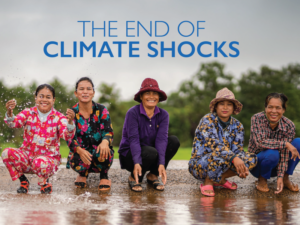Did you know that Los Angeles once had a thriving, affluent Black community called Sugar Hill that was obliterated when Interstate 10 was built right through it in the early 1960s? Or that historically Black West Oakland was economically strangled when Interstate 980 cut it off from the downtown commercial district?
These are just two of many instances when government decisions turned a blind eye to their impact on communities of color, doing enormous damage. It’s time for California to do better.
White families had a median $110,000 in liquid assets, compared to $500 for Vietnamese Americans, $200 for Blacks, and $7 or less for Latinos.
We face four crises: economic equity, environmental justice, the pandemic and structural racism. Undoing past mistakes is not enough. We must move forward in a bold new direction that envisions a multicultural society with shared prosperity. California legislators must prioritize bills that will promote equity and social justice and shun those that will do harm.
We know that the COVID-19 pandemic has created a public health and economic crisis that is exacerbating social inequities for the most vulnerable in our communities. We see this in the glaring racial and ethnic disparities in case numbers as well as in the economic impacts of the pandemic.
But racial and economic inequity long predated the pandemic. The California Budget and Policy Center found that in the Los Angeles area, for example, White families had a median $110,000 in liquid assets — cash they could tap into in case of job loss or other emergency — compared to $500 for Vietnamese Americans, $200 for Blacks, and $7 or less for Latinos. That’s not a typo: $7 or less.
Lawmakers need clear social equity data points in order to reduce potential bias.
And that was before COVID-19 devastated many industries that disproportionately employ people of color, such as hospitality, retail, and construction.
We know that much of this inequity stemmed from government policy decisions. Late last year, CalTrans finally acknowledged its “history of transportation decision-making, policy, processes, planning, design, and construction that ‘quite literally put up barriers, divided communities, and amplified racial inequities, particularly in our Black and Brown neighborhoods.’”
Now is the time to demand policies that will move this country out of these systemic practices and proactively center equity at the core of government decision-making.
As our government considers new legislation, lawmakers need clear social equity data points in order to reduce potential bias, limit unintended negative consequences, and prioritize proposals that can benefit the most vulnerable in our communities.
At The Greenlining Institute, we do a lot of such analysis. Over the years we’ve examined the racial equity impacts of everything from mortgage lending to the digital divide. But instead of finding problems and trying to fix them, wouldn’t it be better to avoid them in the first place?
Today California legislators face data gaps in the analysis of new bills. Committee and floor analyses typically include background information on the bill, relevant existing laws, fiscal impacts, and known supporters and opponents. All of that is important, but what’s missing is specific information about a bill’s impact on low income and historically marginalized communities, the ones being hit hardest by COVID-19.
It’s time to empower and encourage just such an analysis for any new legislation considered in Sacramento. This is a cost- and time-efficient way to provide our representatives with the data they need to make informed decisions. Including these findings as part of the public record in the California Legislative Information databasewill mean greater transparency and accountability, and that’s good for everyone.
This is not a new idea. Several states have already moved in a similar direction, particularly for bills related to the criminal justice and child welfare systems. Five states have adopted and implemented racial impact statements for public safety and child welfare bills. And the cities of Seattle and Takoma Park, Maryland both passed resolutions committing to assessing the social and racial disparities of policies.
In California, our local and state public health departments have led on researching and articulating the connections that link unjust health outcomes to structural social inequities involving racism, classism, immigration status, sexual orientation, ableism and sexism, creating a wealth of data and community of practice on these issues.
A resolution just introduced in the California Assembly, HR 39, is designed to bolster this process in the legislature. It encourages the Assembly to explore methods to integrate equity more formally into its daily activities, including the potential adoption of equity impact analysis into the existing committee and floor bill analysis process so that policymakers can make informed, data driven, decisions before a bill is voted on.
It’s long been said that knowledge is power. Let’s give our legislators the knowledge they need to promote equity and justice.
—
Editor’s Note: Debra Gore-Mann is President and CEO and Kelsey Lyles is Senior Racial Equity Policy Manager at The Greenlining Institute.




